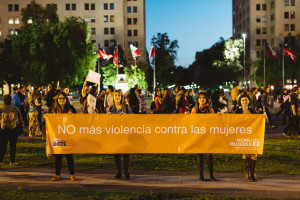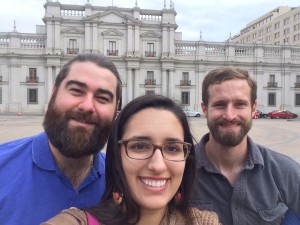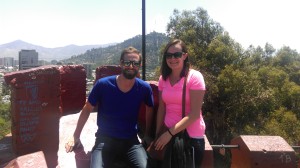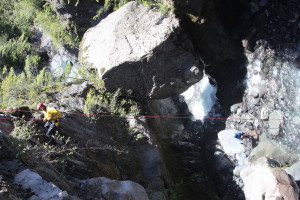As an International Relations student focusing on women’s rights, I had the privilege of working with UN Women during my semester in Santiago, Chile. Chilean President Michelle Bachelet was actually the inaugural director of the organization in 2011, which makes the shared office space, small staff of four women, and equally small budget primarily sourced from the European Union an interesting challenge.
As an intern, I was responsible for facilitating internal operations through research, document drafting, and excel database development. I supported project implementation through inter-agency collaboration, communication with community stake-holders, and management of event logistics. I was able to participate in international campaigns such as the UNiTE campaign against gendered violence and the HeForShe campaign promoting an inclusive approach to gender equality; as well as domestic projects focusing on increased female political participation and leadership; street harassment; and closing the gendered wage gap in Chile.
In our world, 1 in every 3 women globally experiences physical or sexual violence. Millions of girls are being denied the opportunity to study, and two thirds of the illiterate population is made up of girls. Women struggle to enter the workforce, to be taken seriously, to rise to positions of leadership, and a significant wage gap leaves women more vulnerable to poverty. Only 22% of national parliaments are comprised of women, with only 11 serving as heads of state and 13 as heads of government. Women are disproportionately affected by health issues related to poverty, malnutrition, HIV/AIDS, domestic violence, war, and lack of reproductive rights.
Organizations such as United Nations Women become ever more critical in the global fight for equal access to education and quality health care; the right to equal wages and the ability to actively participate, serve, and lead in our political systems; the right to live without fear of violence and harassment. I am incredibly grateful for the perspective I have gained during this semester and I hope to see both the financial resources and program capacity of this young organization grow as the world begins to recognize the need to prioritize women’s rights for the benefit of society.




